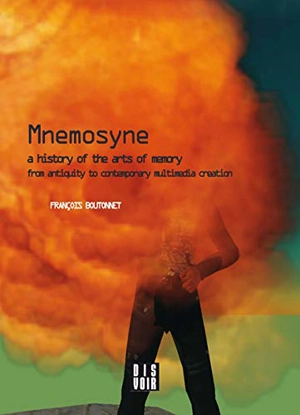
Mnemosyne : a history of the arts of memory : from antiquity to contemporary multimedia creation
François Boutonnet
Versailles, Lyon 2ᵉ, Lyon 6ᵉ...
Ce que dit l'éditeurThe « Arts of Memory » are a marker of the way people think in a given time period. They act as a black box of the representations of the world. 2700 years ago, the Ancient Greeks invented the Arts of Memory, personified as Mnemosyne. More than merely a mnemonic device useful to orators, they invented a technique consisting in visually representing the world, which has since nurtured figurative arts and human knowledge. Focusing on the theme of Mnemosyne, this essay thus reflects on the history of visual thought revealed by the Arts of Memory, from Antiquity, through Giordano Bruno, Leibniz and Benjamin to Aby Warburg and digital landscapes. Today, with digital culture a major objective of network - linking human beings, and through with its interactive practices provide new possibilities for reinventing Bruno's expanding universe. This enables us to access a wide range of information and knowledge and their interactions help us to develop collective intelligence. This work also shows how humans and their computer memories are producing new forms o1 knowledge using digital media combined with this ancient Art. We see how a new type of visual thinking is emerging that creates new forms of knowledge and representations of the real. Today, because of the new possibilities afforded by audiovisual applications and multimedia, these arts of memory have become fully meaningful as a way of apprehending the emergence of a digital thought process. The status of images has followed the same paradigm shift, so that we now consider the image not as the visible but as the visual, not as a world of shapes, but as a concretion of time, obligating, according to Georges Didi-Huberman, art history to turn back into an art of history, an art of memory. |
RésuméCet essai présente une histoire des arts de la mémoire, initiés en Grèce antique, transmis de génération en génération, jusqu'à la virtualité des dispositifs numériques dans l'art contemporain. ©Electre 2025 |
Caractéristiques Auteur(s) Éditeur(s) Date de parution
1 octobre 2016
Collection(s)
Visual arts
Rayon
Arts généralités
Contributeur(s) Charles La Via
(Traducteur), Adam Clark
(Traducteur) EAN
9782914563833
Nombre de pages
127
pages
Reliure
Broché
Dimensions
28.0
cm x
22.0
cm x
cm
Poids
296
g
|




